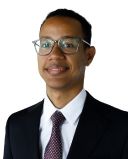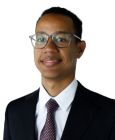Education
So, Who Are You?
Personal Perspective: Ask immigrants "Who are you?" not "Where are you from?"
Posted February 24, 2023 Reviewed by Tyler Woods
Key points
- “Who are you?” tells you about the person, and opens pathways for genuine connections.
- “Where are you from?” tells you about the place from which a person hails and with which they may no longer identify.
- Immigration is often seen as an asset, not a liability, but the reality of many immigrants is both complicated and complex.
As a zero-generation immigrant, I am always asked, “where are you from?” People seem to be genuinely confused about my identity, ethnicity, and race. At first glance, most think I am either Black or African. I am neither. I ethnically identify as Arab. When I start speaking, my foreign accent puzzles people more.
This question bothers me because it’s often asked at the beginning of the interaction, and my answer often determines the trajectory of what follows. If I said I’m from Yemen, then the conversation concludes right then and there because the person with whom I am speaking could neither resonate nor connect with anything I say about Yemen. No shared experience or interests.
I have recently attended a one-week conference in Washington, D.C. and roughly 90 percent of the people I met asked me the question, “so, where are you from?” This question teaches people about my background and not about me; I appreciate the question “who are you?” much better because it asks about my story. I no longer identify with or belong to the place from which I hail, yet many people focus on that. It is annoying. I appreciate their curiosity but it is presumptuous because it suggests, however implicitly, that by knowing my place, they could know about me.
Fortunately, I was asked by a professor whom I met at the conference, “so, who are you?”—a question that has taken me by surprise. But it’s a good question that allows the other person to know more about me in a short amount of time.
The best way to introduce myself is to start with where it all started—my family. I was the middle child, and for some reason, I felt that my parents were paying more attention to my elder brother than me, which defined my childhood. I had the middle-child syndrome, so to speak.
To prove to my parents that I was just as good as my elder brother, I worked harder to have outstanding academic achievement. In my final year of high school, I outperformed hundreds of thousands of students in Yemen and was placed at the top in my province, an achievement for which I received numerous accolades and prestigious scholarships. I was awarded a fully funded scholarship to pursue my higher education in the United States, an opportunity for which I was neither planned nor prepared.
In May 2016, I arrived to the United States as an international student with plans and hopes to visit Yemen annually; but the war in Yemen, which was declared the worst humanitarian crisis in modern history, prevented me from seeing my family for the past seven years.
I studied psychology and religion at the University of Miami, simply because I believe that the individual is the most important level of analysis and that God is the most important question. I was planning to become the next Dr. Phill but those plans were canceled, largely because psychology demanded a high level of mastery in English and extreme familiarity with American culture, both of which I didn’t have at the time of applying to graduate school. In other words, it was language and cultural barriers that prompted me to change careers.
Now, my English has improved, though I’m a long way from achieving mastery. For example, I still can’t anticipate how idioms are used because they are strictly learned by memory. I once told my professor that I have been writing a book in my mind for the past seven years and I need “to get it out of my chest.” He corrected me by saying the idiom is, “get it off my chest” or “get it out of my head.” The nuances of those differences often escape me. My favorite garbled idiom, however, is: “I thank you from the heart of my bottom!”
Subsequently, I applied to pursue a graduate degree in international educational development at the University of Pennsylvania because I wanted to have an international perspective in my studies, an aspect that I find lacking in many psychology programs, most of which tend to be parochially U.S.-centric, as Daniel Wagner argued in his book, Learning as Development.
At Penn, I met many students who are interested in my demographic and in learning new languages, which made for an enjoyable experience. When I graduated from Penn, I was once again faced with the dilemma of where to apply.
Theoretically, I have always been interested in studying religion, so I applied to Ph.D. programs in top-notch religion and history departments, none of which accepted my application. Practically, I knew that continuing my academic career in international development would make more sense to admission committees, and my intuition was right, as I received a scholarship and a fellowship from the University of Minnesota, where I’m currently pursuing my Ph.D.
The theme of my life has always been to rise above adversity that wasn’t of my own making. I cope with adversity by using our most renewable resource: learning. As my advisor told me, “you’re a naturally born learner.”
For example, during my childhood and adulthood, I have been gifted academically but inexperienced socially, which created a mismatch between my ideals and lived realities. I was highly successful as a neophyte academic but my social skills remain at an inchoate level of development. In Yemen, where I lived the first two decades of my life, having awkward social skills isn’t as much of a problem. But since I immigrated to the U.S., I realized that having social skills is a precondition to achieving holistic well-being, which is an important goal in our divided world.
So that’s who I am: a son, an aspiring scholar, a budding writer, an immigrant torn between two worlds, a human always in need to make drastic personal changes to achieve holistic well-being. That’s the story of my life, briefly told. So who are you?




